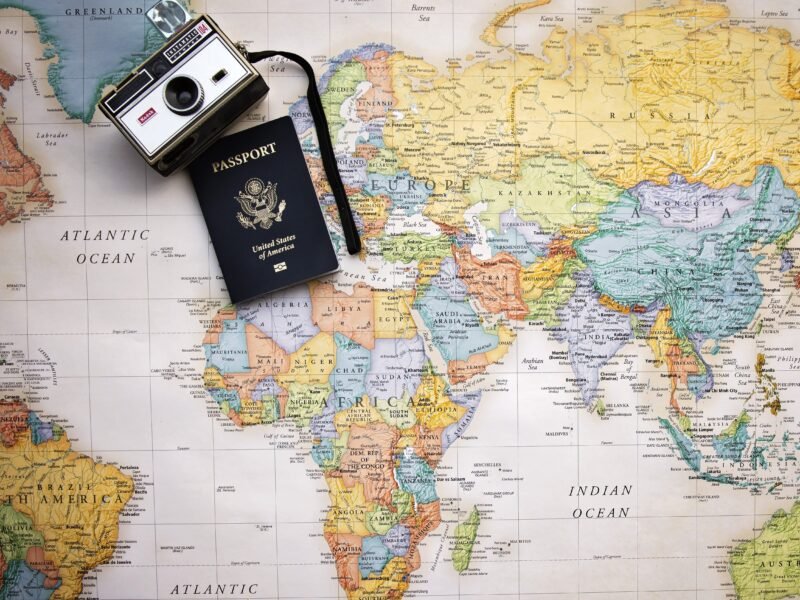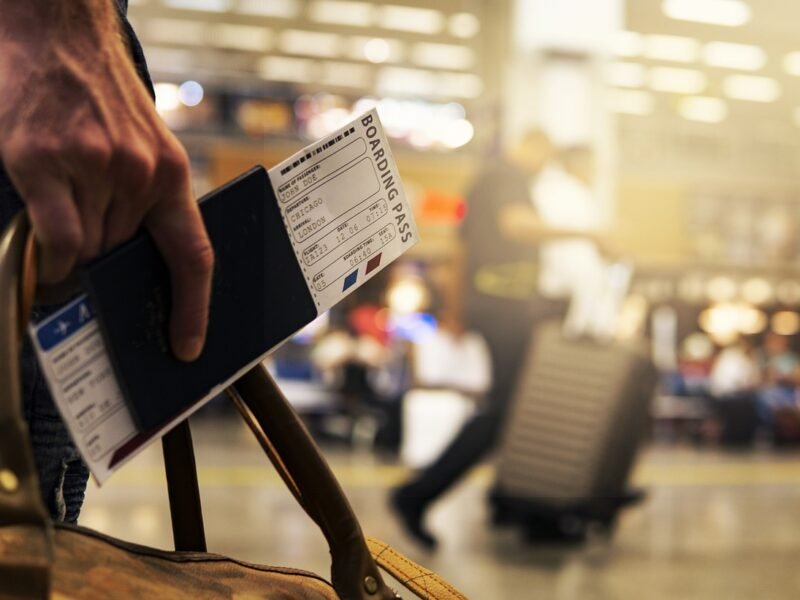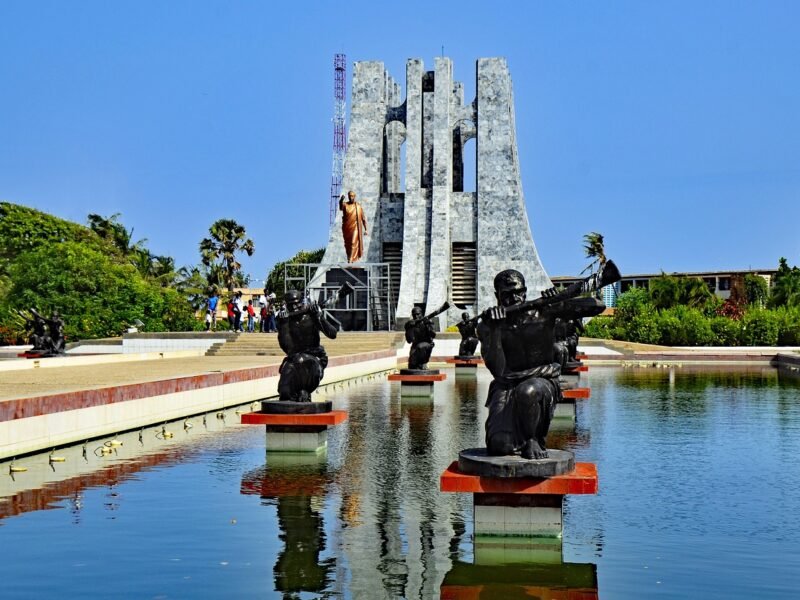Planning an exciting getaway is a thrilling experience, but the cost can sometimes be overwhelming. Don’t let financial constraints stop you from realizing your travel dreams. Travel sponsorship is a lesser-known solution that can help you embark on those adventures you’ve been yearning for. Whether you want to explore the historic streets of Rome or bask in the sun on the pristine beaches of Bali, travel sponsorship may be the key to making your dreams a reality. In this comprehensive guide, we will discuss everything you need to know about travel sponsorship, from understanding how it works to finding suitable sponsors and maximizing your chances of success. So, get ready to learn about this exciting opportunity that can unlock doors to incredible travel experiences.
What is travel sponsorship?
Travel sponsorship is an exciting opportunity to help make your dream vacation a reality. It involves a partnership between two parties, where one provides financial assistance or resources in exchange for specific benefits. Regarding travel, sponsorship can provide financial resources, gear, accommodations, or other assets to help make your trips or experiences more enjoyable. This can be an excellent way to explore the world while satisfying your thirst for new adventures.
To better understand travel sponsorship, it is essential to recognize the two primary players involved: sponsors and individuals seeking support. Sponsors may be people, brands, organizations, or associations vested in promoting their products, services, or causes through travel partnerships. On the other hand, individuals seeking travel sponsorship may include travel enthusiasts, bloggers, social media influencers, athletes, or anyone else passionate about exploring new destinations.
There are different types of travel sponsorship, which varies on the type of partnership. Financial sponsorship is the most common form, where sponsors provide funding to cover travel expenses such as flights, accommodations, meals, or transportation. This type of sponsorship is often sought by people who wish to explore a specific destination or participate in an event but need more financial means.
Travel gear sponsorship is also prevalent, especially for experienced travelers or outdoor enthusiasts. Companies that produce travel gear, such as backpacks, hiking boots, or camping equipment, may sponsor individuals who can promote their products through their travels. In such cases, sponsored travelers often receive free or discounted gear in exchange for showcasing and reviewing the products on their platforms or social media channels.
Accommodation sponsorship is another type of travel sponsorship that has recently gained popularity. Hotels, resorts, or rental organizations may offer free or discounted stays to travelers in exchange for exposure and promotion. This type of sponsorship benefits both parties, as sponsors gain increased visibility and potential customers, while sponsored travelers enjoy luxurious facilities they might not have been able to afford otherwise.
Travel sponsorship can be an enriching experience for both sponsors and individuals seeking support. For sponsors, it offers exceptional marketing and a valuable opportunity to reach new audiences and attract potential customers. Sponsors can showcase their brand, products, or services to a broader and more diverse audience through sponsored travelers’ content or social media posts, often targeting a specific niche or demographic.
Benefits of Travel Sponsorship
Travel sponsorship offers mutual benefits for travelers and sponsors, creating a win-win situation for all parties involved. We will discuss the benefits of travel sponsorship for travelers and sponsors, highlighting its expected benefits.
For travelers, sponsorship for travel presents an exciting opportunity to take on new adventures and explore various regions of the world. One of the most apparent benefits is the financial assistance it provides. Travel can be expensive, and sponsorship helps reduce some of its financial burdens. Whether it’s the cost of flights, accommodation, or transportation, having support can significantly reduce or eliminate these expenses, making travel dreams more affordable and accessible.
Moreover, beyond financial aid, travel sponsorship often allows travelers to experience their destinations more immersive and authentically. Sponsors often connect strongly with local organizations, hotels, and tour operators. Thus, sponsored travelers may have access to exclusive experiences, discounts, or upgrades that enhance their overall travel experience. This includes guided tours, behind-the-scenes access to cultural landmarks, or invitations to special events. Such opportunities enable travelers to delve deeper into the local culture and make their journey memorable.
Additionally, travel sponsorship often provides travelers with networking opportunities and connections that can be invaluable in the long run. Sponsors are typically well-established organizations or associations, and their affiliation can lend credibility to the traveler’s brand or career. Travelers may gain visibility within their industry or field of interest by partnering with a sponsor, opening doors for future collaborations, job prospects, or even mentorships. These connections can be instrumental in advancing one’s professional or personal goals, making sponsorship an excellent opportunity for career development.
On the other hand, sponsors also receive significant benefits from supporting travel experiences. Sponsoring a traveler can elevate their brand visibility and reach new audiences. The invested traveler becomes a brand ambassador, sharing their journey and experiences with their followers and networks on social media, blogs, or vlogs. Sponsors can access a broader and more diverse audience through these channels, potentially expanding their customer base and increasing memorability.
Furthermore, sponsorship for travel aligns brands with a sense of adventure, curiosity, and authenticity. By associating themselves with travelers who embody these qualities, sponsors can enhance their brand and attract similar customers with similar interests. Travel sponsorship allows sponsors to engage with an audience more personally and meaningfully, fostering brand loyalty and connection.
Lastly, sponsoring travelers allows sponsors to support causes or initiatives aligned with their values. For instance, sponsors can help travelers raise awareness for environmental sustainability, cultural preservation, or community development. By aligning themselves with these projects, sponsors demonstrate their commitment to social responsibility while enhancing their brand’s reputation.
Finding Sponsorship Opportunities
Getting sponsorship for your travel experiences can significantly reduce costs and turn your dream trips into reality. Although it may seem intimidating initially, several opportunities are available, and with the right approach, you can find the perfect sponsors to help fund your journey. Here are some practical tips and strategies to help you navigate the process:
1. Define Your Ideal Interest Group and Specialty:
It’s essential to determine your interest group and niche before embarking on the quest for sponsorship opportunities. Are you a travel blogger, an adventure enthusiast, or a wildlife photographer? Understanding your specific interests and the audience you wish to engage with will help you identify potential sponsors whose values align with yours. This will make it easier for you to find the right match and build a robust and long-lasting partnership.
2. Make a Compelling Sponsorship Proposition:
Creating an attractive sponsorship proposal is crucial in catching the attention of potential sponsors. Your proposal should clearly outline the advantages of partnering with you, your unique attributes, and what you can offer in exchange. Be sure to emphasize your social media following, website traffic, or other significant metrics demonstrating your reach and influence in your niche.
3. Research Potential Sponsors:
Allocate a portion of your time to research sponsors interested in supporting your travel experience. Identify organizations, associations, or brands that align with your interests, values, and target audience. It is crucial to approach sponsors with a natural connection to your travel plans, as this increases the chances of a successful partnership.
4. Influence Your Existing Network:
Consider reaching out to your existing network, which includes friends, family members, significant others, and fellow travelers, to see if they can introduce you to potential sponsors or offer any leads. Networking within your field is a valuable asset in discovering sponsorship opportunities that may be hidden.
5. Pursue Local Partnerships:
Consider contacting local businesses and associations with connections to the destinations you plan to visit. Local travel industry publications, hotels, restaurants, and adventure companies may be interested in partnering with you to showcase their services to your audience. Building relationships and solid foundations with local businesses can lead to sponsorship opportunities and provide valuable insights and support for your travel plans. Consider approaching local businesses and associations with connections to the destinations you plan to travel to. Local travel industry sheets, lodgings, eateries, or experienced organizations may be interested in partnering with you to elevate their services to your audience. Building associations with local businesses could not just lead to sponsorship opportunities at any point; it can likewise give significant insights into your travel plans.







1 comment
This webpage is fabulous. The superb information shows the maker’s earnestness. I’m dazed and envision additional such incredible presents on.